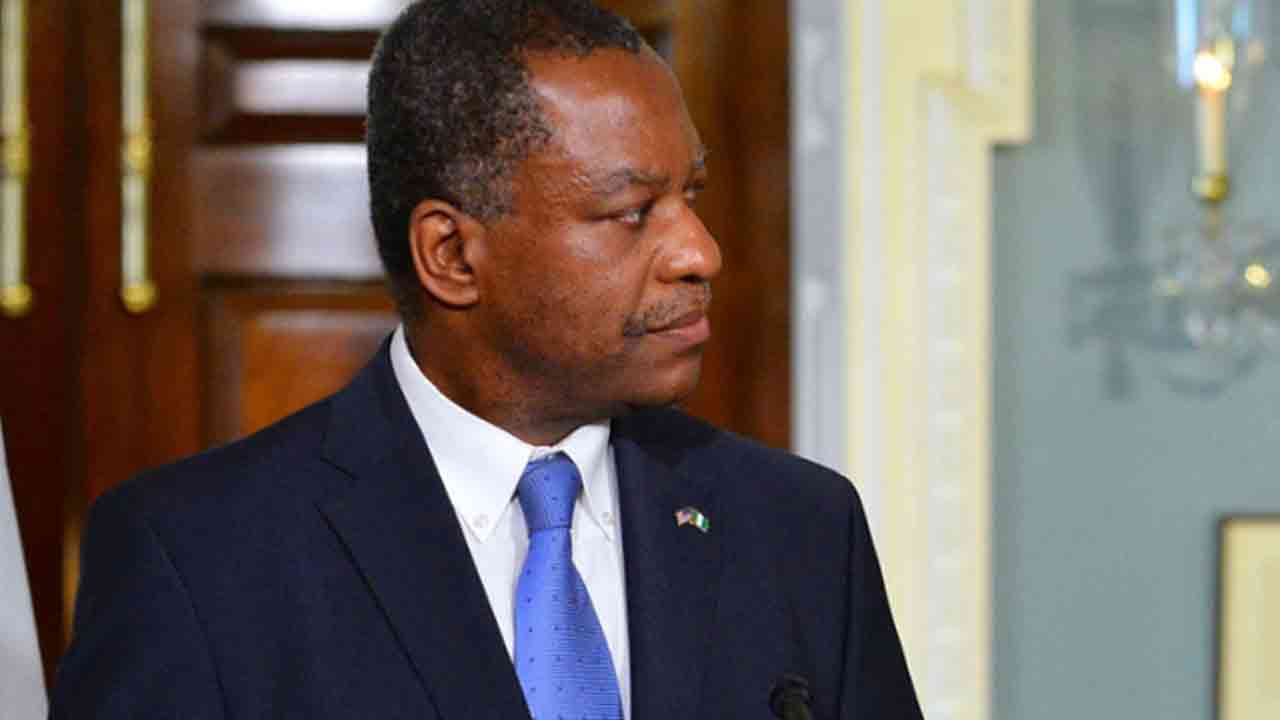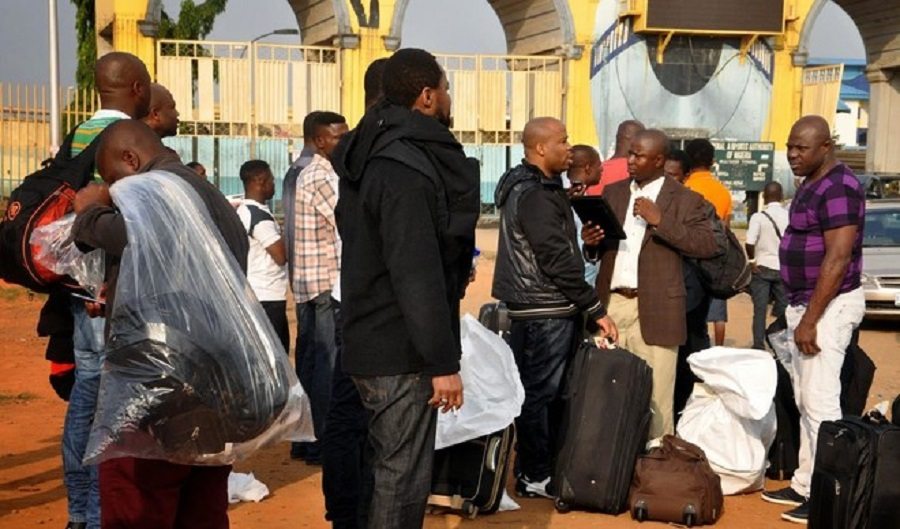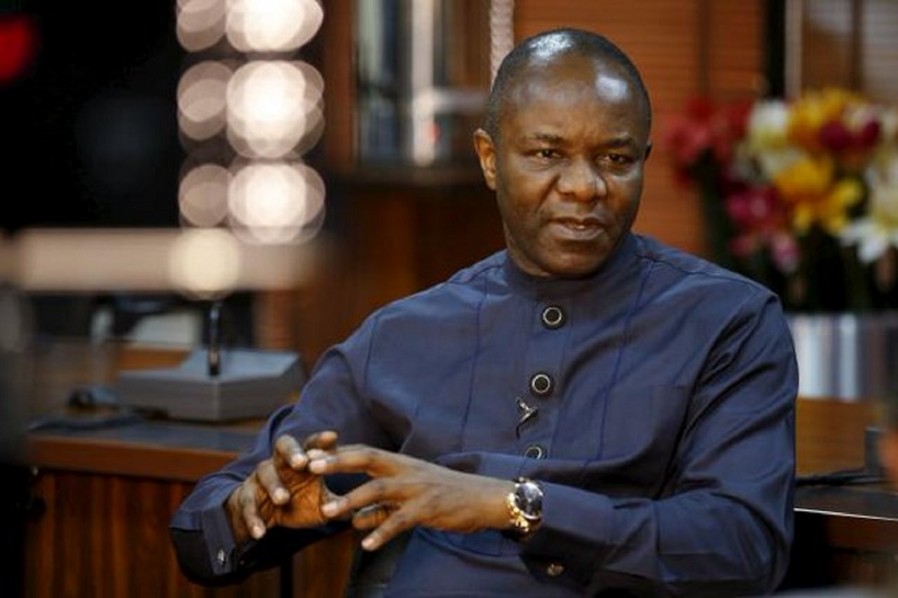Some fresh returnees from Libya have recounted their ordeals in the hands of fellow Nigerians who facilitated their sale to slavery in the troubled country.
TheNewsGuru.com reports that over 1,295 Nigerians were repatriated International Organisation for Migration in conjunction with the European Union in November alone.
Since the beginning of 2017, IOM-facilitated repatriation has brought back 5,578 Nigerian migrants, who were trapped in and outside prisons across Libya.
Some of the returnees who share their horrible experience said most of the kidnap kingpins in Libya were mostly Nigerians and they had no pity on them.
One of them, 26-year-old Odion Saliu, a hairdresser from Edo State who spoke with The Punch said she was kidnapped and handed over to a Nigerian, who forced her to call her mother.
According to her, her mother in Benin paid N200, 000 but she was again sold by the same Nigerian for 3,000 dinars (about N794, 000).
Saliu explained that the Nigerians spoke Pidgin English and some Nigerian languages.
She said, “When I was kidnapped with others and held for some weeks, the Arabs asked if I wanted to be taken to a Nigerian and I readily said yes. I was very happy that I was going to someone from my country. But it was a lie.
“The Nigerian they took me to locked me in a cell and told me to call my mother and ask for N60, 000. The man said he would sell me to a connection house if my family did not get the money. I called to inform my mother and the trafficker who facilitated my journey from Nigeria.
“But the trafficker spoke with them on the phone and told them the amount they demanded was too small. They increased it to N200, 000. My mother paid into an account after they provided her with the account number over the phone.
“The Nigerian said if I wanted to cross the sea, I had to pay him again. But when we got to the seaside, he sold me again.”
Another Edo State indigene, Sunday Anyaegbunam, left Nigeria along with his wife in April.
He said during their nine-day journey through the desert, they were sold twice by Nigerians.
According to him, when their Nigerian “burger” (trafficker) sold them to another set of Libyan traffickers at Agadez, Niger, the traffickers sold him and his wife to a Nigerian who took them to Sabha, Libya, where they were separated in different cells.
“We were made to contact our families on the phone and I had to ensure the payment of N400, 000 for my release and N300, 000 for my wife,” Anyaegbunam said.
Like others, he could only identify the Nigerians trading in their countrymen in Libya through the Nigerian languages they spoke and their accent.
He said, “The Nigerians selling people in Libya are more wicked than many of the Arabs. I have never seen people so heartless as the Nigerians who bought and sold me.
“There are many of them in Agadez and Sabha, who are making so much money from selling their own people. But there are other West Africans doing the business too.
“When you approach them and say, ‘Please, my brother, help me.’ They would tell you, “No brother in the jungle.”
A 25-year-old woman, Esosa Osas, who was in Libya for six months, said she also met many Nigerians selling their countrymen.
“You dare not talk to them, else they would beat you and lock you up. They sell women for 5,000 dinars and men for N4, 000 dinars. I noticed that the connection houses were also controlled by Nigerian women.”
All these accounts were corroborated by 35-year-old Harrison Okotie who lived in Libya for three years until his repatriation.
“Nigerians and Libyans are doing the business like they are one big happy family,” he said.
Most of the migrants who arrived Nigeria on Thursday were from Edo State.
Officials of the state’s task force on illegal migration were on hand with luxurious buses to transport their people back home.
A member of the task force, Mr. Okoduwa Solomon said that his team had made six such journeys to the airport within the last one month to take their indigenes repatriated from Libya back home.
He said, “The first process is to take them through counselling, then we profile them.
“After that, we put them in a home that the state government has provided for the returnees. The Edo State Government is paying each of the returnees from the state a stipend.
They are going to undergo a training in agriculture, poultry, fishery and others to make them useful to themselves and the system.”
Officials of the National Emergency Management Agency coordinate the reception of the returnees at the airport.South West Zonal Coordinator of the agency, Mr. Yakubu Sulaiman, said the returnees would be lodged in a hotel where they would have the chance to clean up before their journey back home.



